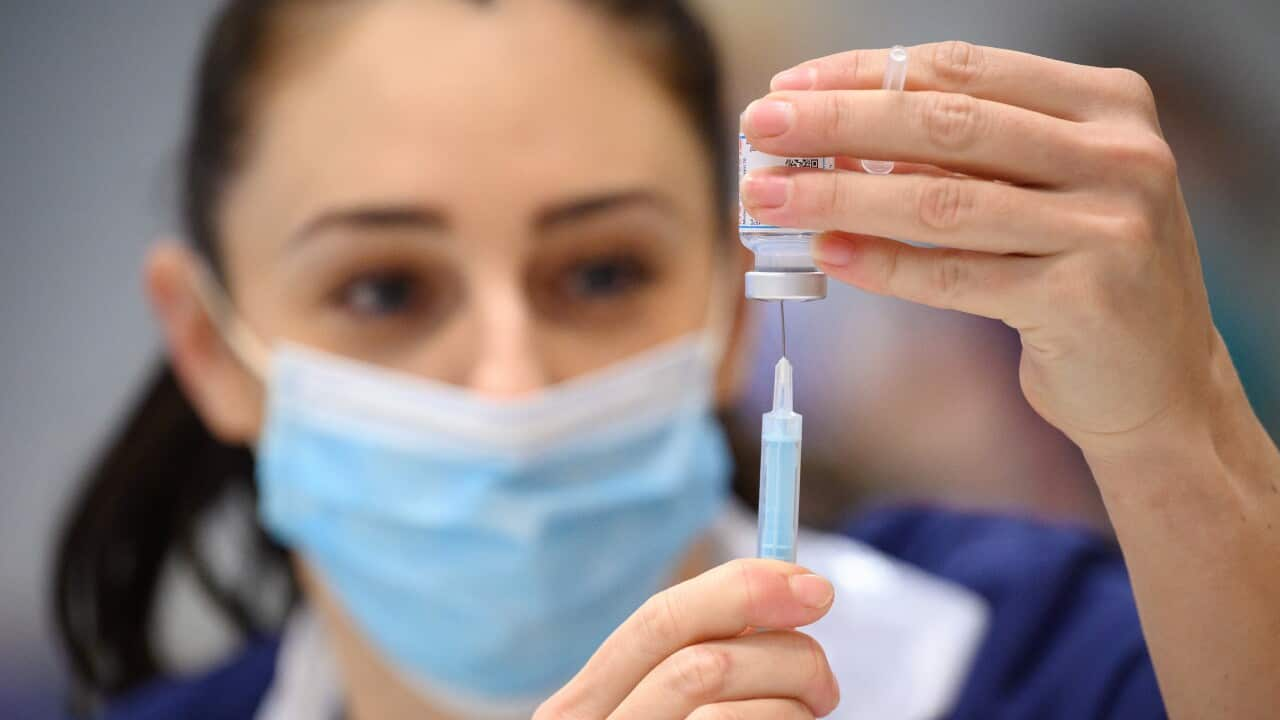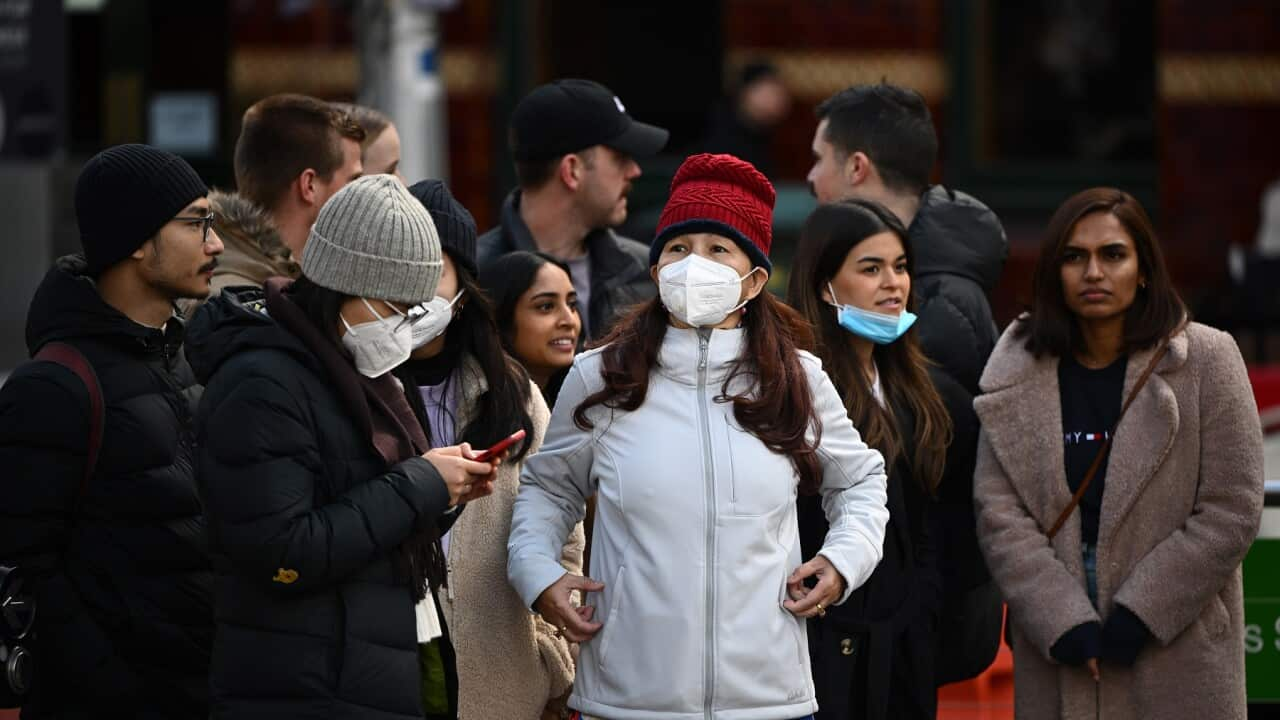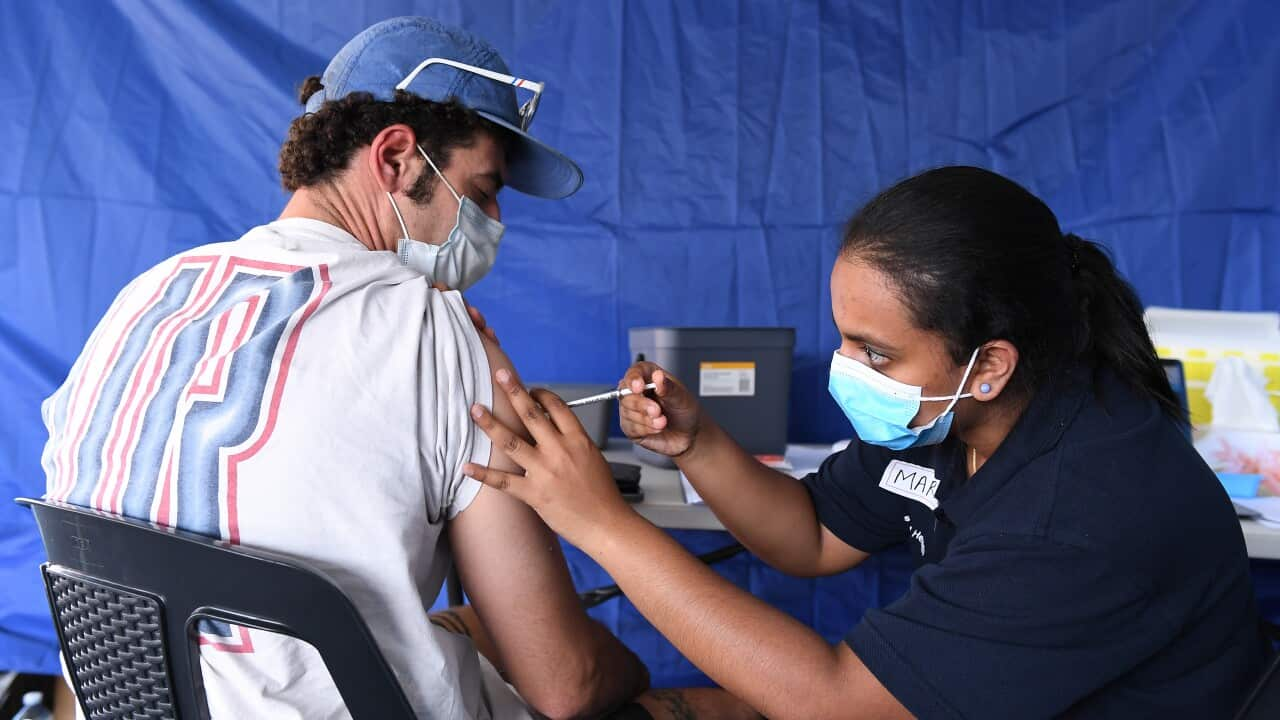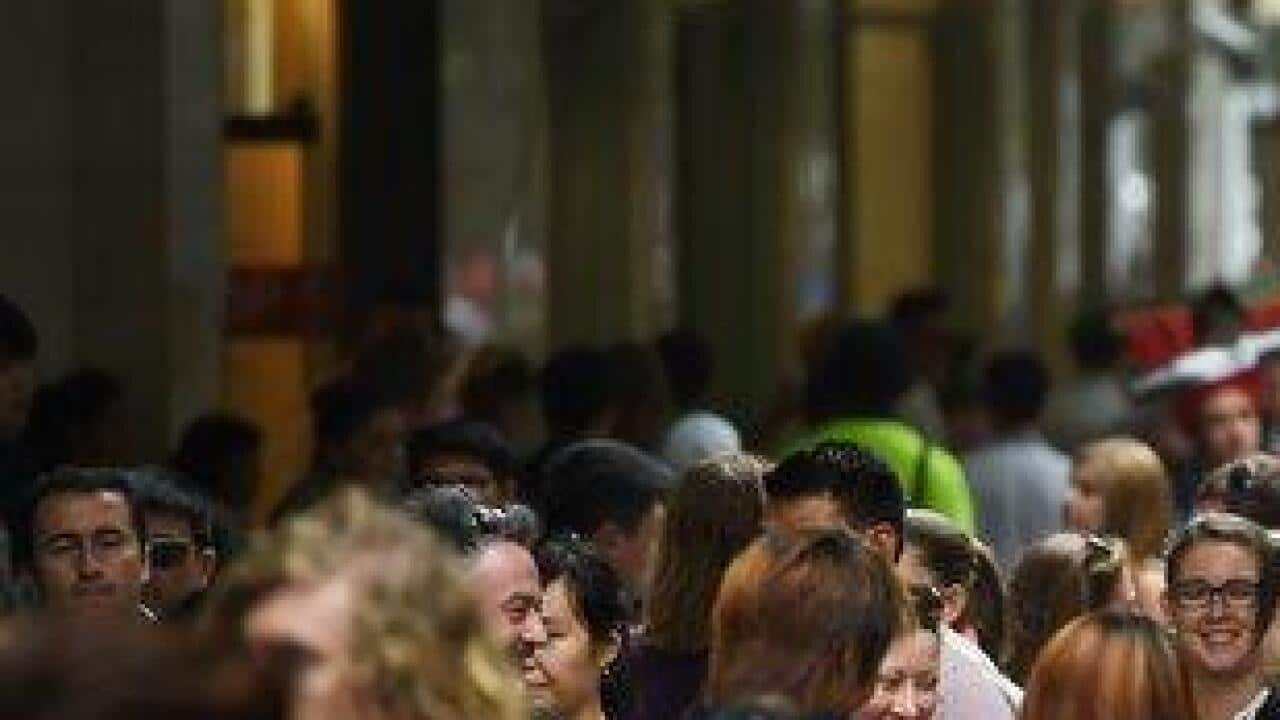Key Points
- The president of Moderna Inc has discussed possible costs for COVID-19 vaccines in the United States.
- The Biden Administration has said the pandemic public health emergency will end in May.
- Access to COVID-19 vaccines and boosters remains free in Australia.
Three years into the coronavirus pandemic, Moderna Inc president says the company expects to price its COVID-19 vaccine at around $US130 ($A194) per dose in the United States going forward.
It comes ahead of the United States' pandemic public health emergency ending in May, meaning the federal government will no longer shoulder all vaccine costs.
So what would be the cost of staying safe from COVID-19 in the future, and will you need to start paying for your vaccination?
What is happening in the United States?
On Monday, Moderna Inc president Stephen Hoge was interviewed ahead of a Congressional hearing run by democratic senator Bernie Sanders on Moderna’s pricing plans.
“There are different customers negotiating different prices right now, which is why it's a little bit complicated,” he said.
The company had previously said it was considering pricing its COVID vaccine in the range of $US110 ($A164) to $US130 ($A194) per dose in the United States, similar to the range Pfizer Inc said in October it was considering for its rival COVID shots sold in partnership with BioNTech.
The Biden Administration has said the pandemic public health emergency will end in May, shifting price negotiations to insurers and other purchasers instead of just the federal government.
In February, Moderna forecast significantly declining 2023 COVID-19 vaccine sales, which reached $18.4 billion in 2022.
Demand for the shots has declined sharply this year due to built-up product inventories around the world and increased population immunity from high rates of vaccination and previous infections.

The Biden Administration has said the pandemic public health emergency will end in May. Source: AAP
Could we have to pay for vaccines in Australia soon?
In Australia, there is no out-of-pocket fee for COVID-19 vaccinations, regardless of Medicare or visa status.
The Department of Health and Aged Care spokesperson told SBS News any decisions of the government relating to future COVID-19 boosters will continue to be informed by the Australian Technical Advisory Group on Immunisation (ATAGI) advice.
The spokesperson said this advice will be informed by ongoing surveillance of COVID-19 infection rates and clinical outcomes, new variants, and vaccine effectiveness.
"It is not possible to pre-empt changes to ATAGI advice, nor broader recommendations for the COVID-19 Vaccination Program," the spokesperson said.
"While Government will continue to look at program arrangements supporting the COVID-19 Vaccine Program as appropriate and will communicate any changes to the public and providers accordingly, there are no plans to change access arrangements.
"Access to COVID-19 vaccines remains free."
The Australian Government has invested a total of over $17 billion in Australia’s vaccine and COVID-19 treatment supply as part of the COVID-19 health response.
Could COVID-19 boosters become similar to flu vaccines?
Under Australia's National Immunisation Program, children aged between six months and five years, pregnant women, people aged over 65, Aboriginal and Torres Strait Islander people aged six months and over, and those with certain medical conditions can access free influenza vaccines.
Some employers, particularly in sectors such as health and aged care, also facilitate access to free vaccines for staff.
Associate Professor Holly Seale, an infectious disease social scientist, said it is difficult to predict who will remain eligible for free COVID-19 vaccines in the future.
"That would be a decision from the government based on the latest trends in disease, burden, impact in terms of hospitalisation and morbidity and so forth," she said.
"We may also see it continue to be free in occupational settings; we've seen large outbreaks of Covid in aged care and impact in hospitals, so it may be that those groups continue to get free access, but beyond that ... really will depend on calculations from the government."
Will your employer pay for you to get vaccinated?
Professor Seale told SBS News access could be a significant factor in whether or not Australians continue to get vaccinated in the future.
She said she would like to see employers facilitate vaccination for workers, and says this could help reduce transmission in the workplace and reduce the number of people taking sick leave.
"Businesses need to consider their role in this, in terms of - just like they offer flu vaccination - offering COVID-19 vaccination, will that support a healthy workforce, reductions in the need for people taking sick leave, reductions in the risk of transmission in workplaces," she said.
"It will be about businesses thinking about stepping up, providing access for free, or if they can't go to that length, maybe it is about making access as easy as possible, perhaps having a pop-up clinic each year so employees can go get vaccinated."
Could this create a class gap in access to vaccines?
Diego Silva, senior lecturer in bioethics at the University of Sydney, says if governments cease covering the costs of vaccines, there will be equity gaps, with many people likely to be unable to afford vaccines.
"We know that vaccination rates go down when you don't have publicly funded vaccines and you place the cost onto public citizens," he said.
"It raises a host of issues ... we know that right now, cost of living is going up for everyone, so if it's a matter of choosing between a vaccine or food, people are obviously going to choose food," he said.
He believes governments should continue paying for vaccines.
"We know that prevention tends to be cheaper than curative medicine... so even if you're preventing a handful of people from reaching intensive care units, there would likely be cost-saves," he said.
"You would actually potentially prevent people from having very serious situations with COVID-19 ... I think generally speaking, the default ought to be that the government should provide preventative measures both for practical, pragmatic reasons as well as for intrinsic health reasons."













